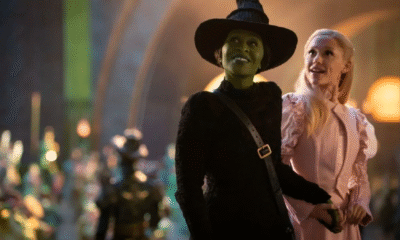Entertainment
Taylor Swift: How Many Grammys Does She Have? on January 30, 2024 at 5:52 pm The Hollywood Gossip
To say say Taylor Swift is a Grammy winner is an understatement.
More accurately, she is a historic Grammy winner, and in 2024, she may break on of the biggest records in award show history.
While we’re all anxiously waiting to see if she’ll have Travis Kelce on her arm for the big show, let’s take a look at Taylor’s winning history. How many Grammys does Taylor have? The answer, truthfully, is NEVER ENOUGH!
Swift’s big reaction to winning Album of the Year for ‘Folklore’ ( (Photo by Kevin Winter/Getty Images for The Recording Academy))
Taylor Has Been Grammy-Nominated 52 Times
Taylor ranks as one of the most nominated acts in pop music. She has been nominated 52 times for her work over 10 albums.
Plus the re-recordings…PLUS the songs written as one-offs for movies.
She nabbed her first nomination in 2008, for Best New Artist. Although she didn’t win, it wasn’t long before she had a golden gramophone to show off.
Taylor Swift admiring her 2013 win for Best Visual. ((Photo by Jason Merritt/Getty Images))
Two years later, she won 4 Grammys out of 8 nominations for her work on the album Fearless. And things just took of from there!
Not surprisingly, 1989 garnered her the most nominations (10), while Reputation was wildly disrespected with only one nomination in 2019.
Haters gonna hate, hate, hate, hate, hate — but lovers are going to elevate when the the TV version drops this year!
How Many Grammys Has Taylor Swift Won?
Double-fisting Grammys? Only Taylor! ((Photo by Frederic J. BROWN / AFP) (Photo by FREDERIC J. BROWN/AFP via Getty Images))
Out of those 52 nominations, Taylor has won 12 Grammys so far.
She’s got her eye on adding to that number in 2024 though!
Of those wins, three of them were for Album Of The Year. She won the award for 2009 for Fearless, again for 2015 for 1989 and, most recently, for 2020 for Folklore.
She is the first and only female solo artist to accomplish this feat, and if the stars align, she may make history again at the 2024 show.
Kanye West and Taylor Swift on better terms at The 57th Annual GRAMMY Awards at the STAPLES Center on February 8, 2015 in Los Angeles, California. ((Photo by Larry Busacca/Getty Images for NARAS))
It’s worth noting that famous adversary Kanye West does out pace Taylor in the wins department. He has 24 wins over her 12.
But no one can touch Beyonce, who is the most decorated Grammy winner with 32 wins.
Taylor Swift’s Grammy Nominations This Year
In 2024, she’s nabbed 6 nominations, including Song of the Year and Record of the Year for Anti-Hero, and Best Pop Vocal and Album Of the Year for Midnights.
Taylor Swift attends the 65th GRAMMY Awards on February 05, 2023 in Los Angeles, California. ((Photo by Matt Winkelmeyer/Getty Images for The Recording Academy))
Now, here’s the fun part:
If Taylor wins Album of the Year, she will become the first artist EVER to win the prize 4 times. No one else in history has accomplished this!
2024 Grammy Performers
Win or lose, the Grammys this year is all about the performances.
Legends like Joni Mitchell, Billy Joel, and U2 are all set to take the stage, alongside new favorites like SZA, Dua Lipa, and Billie Eilish.
Olivia Rodrigo, and Luke Combs round out the rooster, along with Travis Scott and Burna Boy.
Sadly, Taylor is not slated to perform, though there was as a rumor she’d pop on stage with SZA. We’ll keep our fingers crossed.
Taylor Swift: How Many Grammys Does She Have? was originally published on The Hollywood Gossip.
[[{“value”:”To say say Taylor Swift is a Grammy winner is an understatement. More accurately, she is a historic Grammy winner, …
Taylor Swift: How Many Grammys Does She Have? was originally published on The Hollywood Gossip.”}]]
The Hollywood Gossip Read More
Entertainment
What We Can Learn Inside 50 Cent’s Explosive Diddy Documentary: 5 Reasons You Should Watch
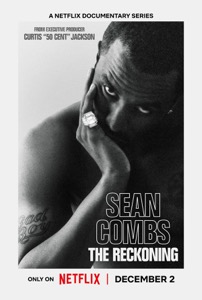
50 Cent’s new Netflix docuseries about Sean “Diddy” Combs is more than a headline-grabbing exposé; it is a meticulous breakdown of how power, celebrity, and silence can collide in the entertainment industry.
Across its episodes, the series traces Diddy’s rise, the allegations that followed him for years, and the shocking footage and testimonies now forcing a wider cultural reckoning.
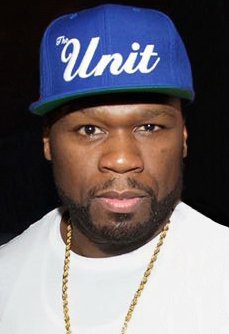
1. It Chronicles Diddy’s Rise and Fall – And How Power Warps Reality
The docuseries follows Combs from hitmaker and business icon to a figure facing serious criminal conviction and public disgrace, mapping out decades of influence, branding, and behind-the-scenes behavior. Watching that arc shows how money, fame, and industry relationships can shield someone from scrutiny and delay accountability, even as disturbing accusations accumulate.
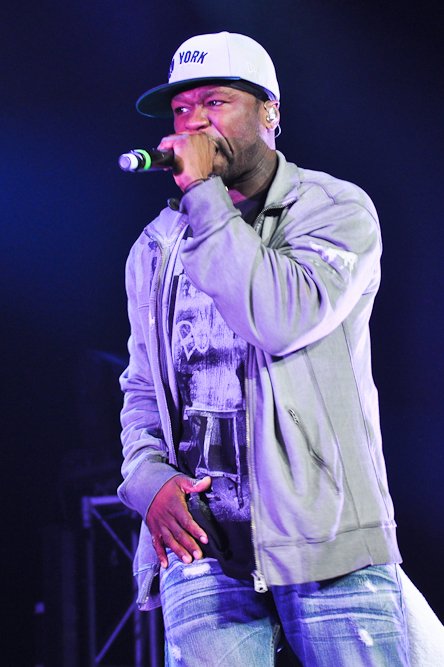
2. Never-Before-Seen Footage Shows How Narratives Are Managed
Exclusive footage of Diddy in private settings and in the tense days around his legal troubles reveals how carefully celebrity narratives are shaped, even in crisis.
Viewers can learn to question polished statements and recognize that what looks spontaneous in public is often the result of strategy, damage control, and legal calculation.
3. Survivors’ Stories Highlight Patterns of Abuse and Silence
Interviews with alleged victims, former staff, and industry insiders describe patterns of control, fear, and emotional or physical harm that were long whispered about but rarely aired in this detail. Their stories underline how difficult it is to speak out against a powerful figure, teaching viewers why many survivors delay disclosure and why consistent patterns across multiple accounts matter.
4. 50 Cent’s Approach Shows Storytelling as a Tool for Accountability
As executive producer, 50 Cent uses his reputation and platform to push a project that leans into uncomfortable truths rather than protecting industry relationships. The series demonstrates how documentary storytelling can challenge established power structures, elevate marginalized voices, and pressure institutions to respond when traditional systems have failed.
5. The Cultural Backlash Reveals How Society Handles Celebrity Accountability
Reactions to the doc—ranging from people calling it necessary and brave to others dismissing it as a vendetta or smear campaign—expose how emotionally invested audiences can be in defending or condemning a famous figure. Watching that debate unfold helps viewers see how fandom, nostalgia, and bias influence who is believed, and why conversations about “cancel culture” often mask deeper questions about justice and who is considered too powerful to fall.
Entertainment
South Park’s Christmas Episode Delivers the Antichrist
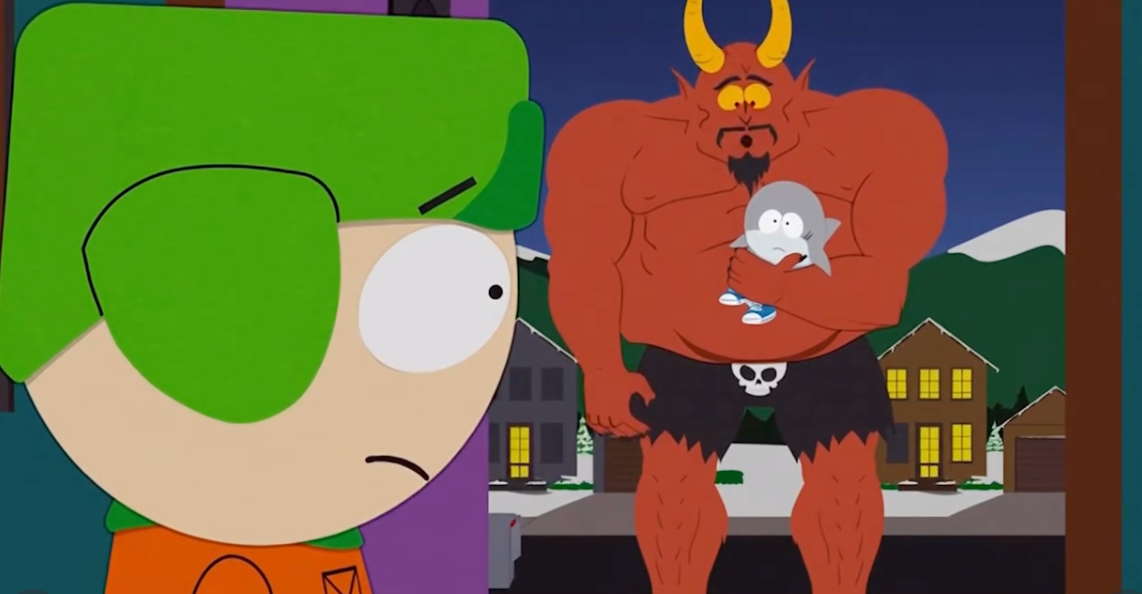
A new Christmas-themed episode of South Park is scheduled to air with a central plot in which Satan is depicted as preparing for the birth of an Antichrist figure. The premise extends a season-long narrative arc that has involved Satan, Donald Trump, and apocalyptic rhetoric, positioning this holiday episode as a culmination of those storylines rather than a stand‑alone concept.
Episode premise and season context
According to published synopses and entertainment coverage, the episode frames the Antichrist as part of a fictional storyline that blends religious symbolism with commentary on politics, media, and cultural fear. This follows earlier Season 28 episodes that introduced ideas about Trump fathering an Antichrist child and tech billionaire Peter Thiel obsessing over prophecy and end‑times narratives. The Christmas setting is presented as a contrast to the darker themes, reflecting the series’ pattern of pairing holiday imagery with controversial subject matter.
Public and political reactions
Coverage notes that some figures connected to Donald Trump’s political orbit have criticized the season’s portrayal of Trump and his allies, describing the show as relying on shock tactics rather than substantive critique. Commentators highlight that these objections are directed more at the depiction of real political figures and the show’s tone than at the specific theology of the Antichrist storyline.
At the time of reporting, there have not been widely reported, detailed statements from major religious leaders focused solely on this Christmas episode, though religion-focused criticism of South Park in general has a long history.
Media and cultural commentary
Entertainment outlets such as The Hollywood Reporter, Entertainment Weekly, Forbes, Slate, and USA Today describe the Antichrist arc as part of South Park’s ongoing use of Trump-era and tech-world politics as material for satire.
Viewer guidance and content advisory
South Park is rated TV‑MA and is intended for adult audiences due to strong language, explicit themes, and frequent use of religious and political satire. Viewers who are sensitive to depictions of Satan, the Antichrist, or parodies involving real political figures may find this episode particularly objectionable, while others may view it as consistent with the show’s long‑running approach to controversial topics. As with previous episodes, individual responses are likely to vary widely, and the episode is best understood as part of an ongoing satirical series rather than a factual or theological statement.
Entertainment
Sydney Sweeney Finally Confronts the Plastic Surgery Rumors

Sydney Sweeney has decided she is finished watching strangers on the internet treat her face like a forensic project. After years of side‑by‑side screenshots, “then vs now” TikToks, and long comment threads wondering what work she has supposedly had done, the actor is now addressing the plastic surgery rumors directly—and using them to say something larger about how women are looked at in Hollywood and online.

Growing Up on Camera vs. “Before and After” Culture
Sweeney points out that people are often mistaking normal changes for procedures: she grew up on camera, her roles now come with big‑budget glam teams, and her body has shifted as she has trained, aged, and worked nonstop. Yet every new red‑carpet photo gets folded into a narrative that assumes surgeons, not time, are responsible. Rather than walking through a checklist of what is “real,” she emphasizes how bizarre it is that internet detectives comb through pores, noses, and jawlines as if they are owed an explanation for every contour of a woman’s face.
The Real Problem Isn’t Her Face
By speaking up, Sweeney is redirecting the conversation away from her features and toward the culture that obsesses over them.
She argues that the real issue isn’t whether an actress has had work done, but why audiences feel so entitled to dissect her body as public property in the first place.
For her, the constant speculation is less about curiosity and more about control—another way to tell women what they should look like and punish them when they do not fit. In calling out that dynamic, Sweeney isn’t just defending herself; she is forcing fans and followers to ask why tearing apart someone else’s appearance has become such a popular form of entertainment.

 Entertainment4 weeks ago
Entertainment4 weeks agoAriana & Cynthia Say They’re in a ‘Non‑Demi Curious, Semi‑Binary’ Relationship… WTF Does That Even Mean?

 News4 weeks ago
News4 weeks agoMexico Bans Dophin Shows Nationwide

 Entertainment4 weeks ago
Entertainment4 weeks agoColombia’s ‘Doll’ Arrest: Police Say a 23-Year-Old Orchestrated Hits, Including Her Ex’s Murder

 Entertainment4 weeks ago
Entertainment4 weeks agoHow The Grinch Became The Richest Christmas Movie Ever

 Entertainment4 weeks ago
Entertainment4 weeks agoMiley Cyrus Is Engaged to Maxx Morando

 News4 weeks ago
News4 weeks agoUS May Completely Cut Income Tax Due to Tariff Revenue

 Business3 weeks ago
Business3 weeks agoLuana Lopes Lara: How a 29‑Year‑Old Became the Youngest Self‑Made Woman Billionaire

 Film Industry2 weeks ago
Film Industry2 weeks agoDisney Brings Beloved Characters to ChatGPT After $1 Billion OpenAI Deal













